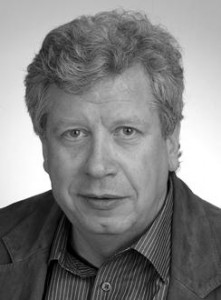Search Results for Tag: deutsche welle
Do you really need all of that?
All we need is less?! from youthinkgreen on Vimeo.
Flo is more than a funny guy in a video. He’s a musician with a message: Think about your daily routines, your daily needs, your energy consumption or the way you use cars and plastic bags. Together with the youth network “YOUTHinkgreen” he wants to proof that little changes have an impact in our lives. In an experiment Flo is going to leave his personal comfort zone for a few weeks. From November 25th he will live without unnecessary packaging for 7 days, he will avoid motorized transport for another week and finally he will try to live without electricity. Flo will keep us updated on his feelings, successes and dissappointments, by texts, pictures and some video posts. If you want, you are free to join him.
Plastic bottles to greenhouses
 A few days ago we received a very inspiring idea from Colombia. The e-mail came from the Centre for Science and Environmental Awareness and it helps to deal with growing mountains of empty plastic bottles.
A few days ago we received a very inspiring idea from Colombia. The e-mail came from the Centre for Science and Environmental Awareness and it helps to deal with growing mountains of empty plastic bottles.
We learned from the institute’s website that in Colombia an incredibly large amount of 15,000,000 plastic bottles is dumped every day. These bottles are not only thrown into trash bins, they are mainly just thrown away somewhere and this way become a very serious environmental problem.
The Centre for Science and Environmental Awareness tries to tackle the problem. As you can see in the picture, greenhouses are built to grow daily goods. The plastic-bottle-roofs have a size of about 3×3 meters. With only 4 hours work a week the roofs help to feed a family for a whole year, writes Carlos Alberto Yepes Vera, director of the center.
He also calls out to donate bottles or similar garbage to build more of these houses. The project’s goal, he says is also to build an awareness among the population to avoid the use of plastic bottles.
We are extremely grateful to hear from ideas like this one, so send us more of it!
Germany’s not-so-smooth energy transition

Participants at Deutsche Welle’s Global Media Forum 2013. Are they surprised that the ship hosting the opening party runs on polluting diesel rather than clean solar power?
It’s a revolutionary project – Germany plans to meet 80 percent of its electricity needs with wind, sun and other renewable energy sources by 2050. In June 2013, Global Ideas hosted a high-level panel to debate Germany’s “Energiewende” (energy transition) – the country’s biggest infrastructure project since 1945. The debate was part of Deutsche Welle’s “Global Media Forum” in Bonn.
We asked our high-profile panel guests – Is Germany’s green revolution a role model for other countries or could it turn into a nightmare for German citizens with costs exploding? Global Ideas’ Kerstin Schnatz has more.
Energy transition challenges

Claudia Kemfert, head of the Department of Energy, Transportation, Environment at the German Institute of Economic Research (DIW), Berlin
Professor Claudia Kemfert from The German Institute for Economic Research (DIW) stressed, that despite 42 percent of all investments in renewable energies coming from citizens rather than big companies, the energy revolution is still under real threat. The German government provided the wrong incentives for a real green revolution favoring fossil fuels, such as coal, she said. “ We had thought that CO2 prices would solve the problem – but the fact is they don’t,“ Kemfert said, saying that explained why coal power still dominates Germany’s energy mix.
Kemfert, who was recently appointed shadow environment minister in the state of Hesse, warned that Germany had to be weaned off its reliance on coal. “Investments into coal power plants are still too cheap. But when new coal power plants are built today, we will be tied to them for the next 40-60 years until they are paid off,“ Kemfert said.
She admitted that fossil fuels are still needed for the transition phase, but she hopes to see more gas rather than coal as it is less polluting. Though solar power already provides 60 percent of Germany’s electricity needs on a sunny day, gas is still needed for cloudy and windless days, Kemfert said.
‘Dash for gas’
But British environmental journalist Fiona Harvey from the Guardian newspaper did not agree with Kemfert. “Gas is not a low carbon fuel,” the London-based expert on climate change issues said. Harvey warned that Britain’s “dash for gas” may turn into a big problem in the future when gas prices, which tumbled temporarily due to new extraction methods such as shell gas, rise.
According to Harvey, Britain needs an energy transition that increases the percentage of renewable energies from a current 5 percent of the overall energy mix. In Germany, renewables account for over 25 percent. “Only one fuel to rely on is not a good idea,“ Harvey warned, making the case for a green revolution where neither sun nor wind cost anything at all. She said she hoped Germany becomes a role model proving to other countries that a green revolution is possible.
New coal power plants

Franzjosef Schafhausen, head of Section Transformation of the Energy System, Federal Ministry for the Environment, Nature Conservation and Nuclear Safety (BMU)
Moderator Michaela Küfner’s question about whether Germany was intentionally headed for coal was anwered with an emphatic ‘no’ by Franzjosef Schafhausen, who represented the German federal ministry for the environment, nature conservation and nuclear safety.
Schafhausen admitted that new coal power plants are being built in some places – such as the 1.100 Megawatt MW plant Datteln IV in North Rhine-Westphalia. But at the same time, he stressed that Germany’s energy transition policy meant that “no company is prepared to make new investments in coal at the moment.”
Schafhausen who chairs the ministry’s department for the energy transition would like to see the carbon trading system reactivated, hoping to put a higher price on CO2 and thus making coal even less attractive for big companies.
The President calls to act – Obama’s climate speech
US-President Barack Obama gave a speech on climate change yesterday. His words could lead to a milestone-process for US climate politics. He made clear that the United States have to play a leading role in the world’s ambitions to tackle global warming.
The plans the president rolled out are foreseeable wide-ranging, including a limit on carbon pollution for the first time in US history.
Emissions need to fall by 17 percent until 2020, the President said. This will “put an end to the limitless dumping of carbon pollution.”
The emissons already dropped last in 2012 on the lowest amount in 20 years. But not for climate security reasons. The moderate economic developement of the United States and the growing use of natural gas (which has an lower amount of carbon dioxide) rather were responsible for the decreasing numbers.
The exact plans
According to the speech he held in Washington, the United States would boost the production of renewable energy, increase efficiency standards and prepare communities to deal with higher temperatures.
So what exactly the president wants to happen?
The energy that is harnessed from sun and wind should be doubled, according to Obama. That makes a power supply for more than six million househoulds in the US. The president also spoke about the highly debated Keystone Pipeline-project, that is planed to transport tar sand-oil from Canada to refineries at the Gulf of Mexico. This pipeline will only be build if it „does not significantly exacerbate the problem of carbon pollution.“
Another point was the building of a new nuclear power plant, the first one in 30 years. In opposition to Germany for example US still count on nuclear power as a green and save source of energy.
Impacts for the private sector
Obamas plans also reach for the private sector as well. Besides a fuel consumption that is now enlarged from cars to trucks the President wants to fight the waste of energy in private homes, public buildings or companies by supporting building insulation or energy saving light sources.
So, the speech offers a lot of plans. But what can be done? Nothing can be established immediatly, there’s always a long process about a few years. And Obamas presidency lasts for three more years. But at least the plans would be put in place through an executive order, bypassing the Congress, which has stalemated over climate legislation in recent years.
During his presentation the audience could literally see what all this is about: The oppressive heat of June often forced beads of sweat on the presidents forehead.
When a glowing cockroach meets a blue-balled monkey
Each year, on the birthday of Carolus Linneaus (also known as Carl von Linné), who was a great Swedish botanist of the 18th century, the International Instiute for Species Exploration at the Arizona State University releases a top 10 list of last year’s new discovered species.
2012 must have been a great year for taxonomists (these guys give the new species their names), because the list offers some very special creatures such as a glow-in-the-dark-cockroach, a comb-shaped sponge or the world’s yet smallest frog.
The ten species have been choosen from a list of 140 nominees that have been take from a list of 18.000 named species in 2012. So are they more important then the others? Of course they are not. But they probably are more able to raise public awareness on the biodiversity crisis then others.
See yourself if it works. The scishow on youtube has done a very fast and funny video about that list which is definitly worth a look.
At least the list is a very welcome change in the usual news reports on the eco-system. Not everything here has to be doomy all the time. But, of course, the habitats of the new discovered species are not automaticly secured. Most of them are already threatend and just a few steps away from extinction.
Read those lists where you find them. They are important.









Feedback